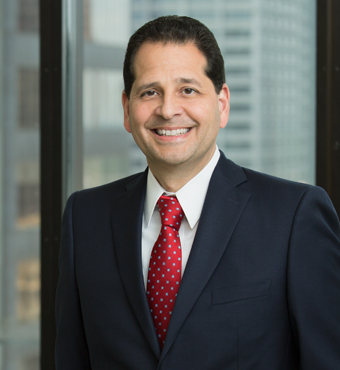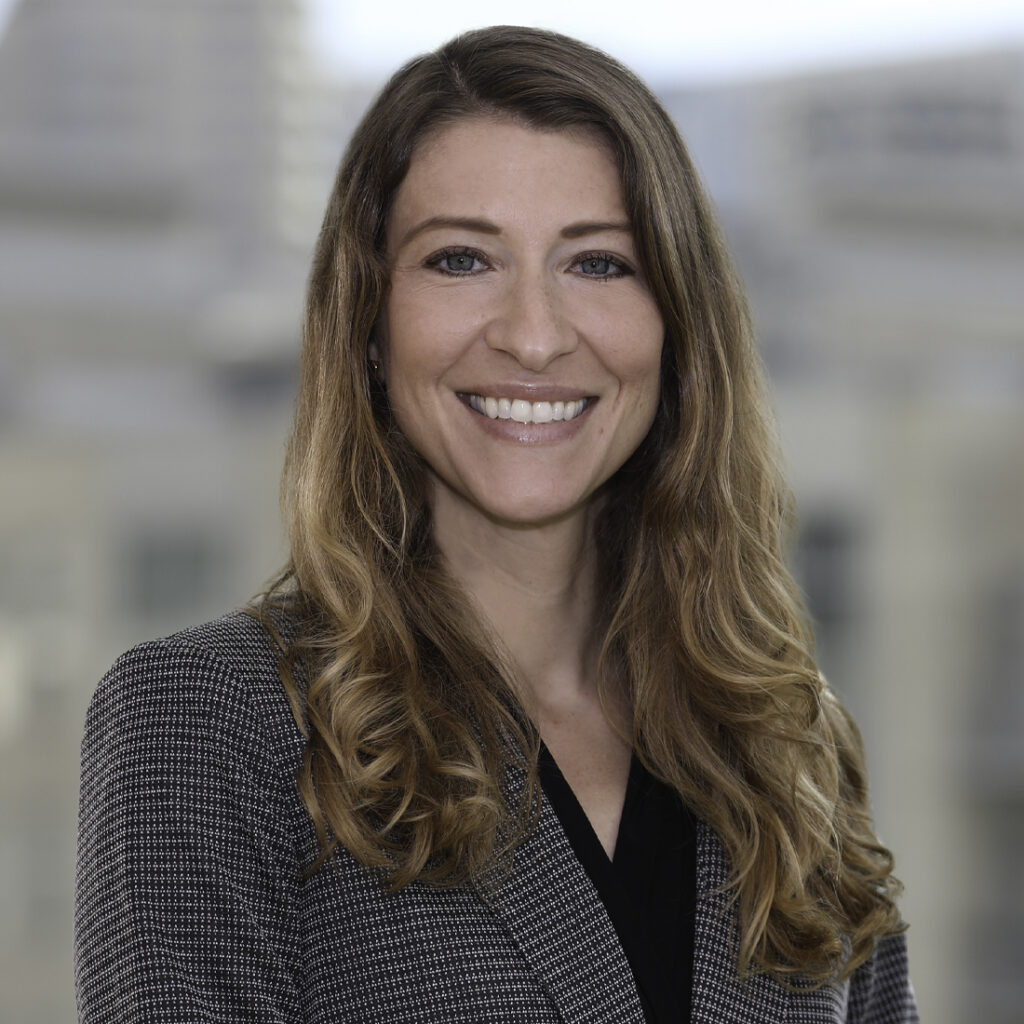If you’re interested in learning how Big Law can evaporate alcohol-forward firm cultures, how bad posture at your desk affects your productivity or how much your daily caffeine intake exceeds the optimal amount (thanks to my nonnegotiable emotional support afternoon coffee, mine’s over double), you could turn to Haynes Boone wellness manager Abby Read and her new podcast, “Wellness in Law,” as a resource.
Several episodes into operation, “Wellness in Law,” which is part of Haynes Boone’s larger “Legal Landscape” podcast, is relevant not only to lawyers within Read’s own firm, but also to the broader legal community.

The latest episode details a personal account of a near-death cardiac arrest by Ricardo Garcia-Moreno, Haynes Boone’s Houston office managing partner, and his subsequent determination to get as many people CPR certified as possible.
In the podcast episode (available on Apple and Spotify), Garcia-Moreno said he suddenly went into cardiac arrest in February 2018 at a restaurant in Las Vegas while watching the Super Bowl with his wife and her family. Three strangers rushed to Garcia-Moreno’s aid to administer CPR — including a server who had been a doctor in Cuba — and kept him alive for 20 minutes until paramedics arrived.
After recovering, Garcia-Moreno led an effort that got 60 to 70 people in Haynes Boone’s Houston office certified in CPR, and several other offices also got training. Garcia-Moreno, who is on Haynes Boone’s wellness committee, said the firm is currently refreshing the effort to provide CPR training to more of its employees — particularly since CPR protocol has changed since the pandemic and good Samaritans can effectively administer CPR with only chest compressions.
“New research shows that you don’t have to do mouth-to-mouth, which before Covid nobody thought about, [but] after Covid, everybody thinks about,” Garcia-Moreno told The Texas Lawbook in an interview. “In my mind, that changes the game.”
The podcast is only a piece of what Read does in her multifaceted role. She joined Haynes Boone in July 2022 as the firm’s first wellness manager, a new role that — in light of a global pandemic that societally spiked anxiety, depression, addiction and a gamut of physical health issues beyond coronavirus — is a rising trend in Big Law as wellness and mental health continue to remain top of mind and a growing priority for firms’ culture, hiring and retention of employees.
Read is in charge of Haynes Boone’s firmwide wellness program, HB Well, and is responsible for streamlining and growing those initiatives across all the firm’s 19 offices. She’s also the administrative chair of the firm’s wellness committee. Besides launching the “Wellness in Law” podcast, Read has spent her first two years on the job spearheading an annual internal wellness survey, expanding the firm’s Wellness Champions program to all 19 offices, organizing mental health and wellness support training for firm leadership (including the intensive, six-hour Mental Health First Aid certification) adding healthier snacks to the office, encouraging movement through steps challenges, and developing Q&As that tell colleagues’ stories, including their wellness journeys with fertility, depression and mindful hobbies.

Read said her approach is holistic and that HB Well focuses on five areas of wellness: physical, emotional, intellectual, spiritual, social and financial. Still, she said, mental health has remained a primary focus in the last couple of years.
At the time she joined Haynes Boone, Read said, the firm had just launched its Wellness Champions Network, a group of roughly 50 volunteer lawyers and staff across all the firm’s offices who provide peer support for any colleagues who need a compassionate, discrete ear to confide in for any mental health struggles. The champions receive training and have a working knowledge of available resources that may further help their peers.
Last year, Read helped the firm launch a partnership with Lyra Health, which offers mental health care to all the firm’s U.S. employees and their dependents. This year, the firm added those benefits to Haynes Boone’s Mexico City office.
“Even over the two years that I’ve been here, the growth that I’ve seen with wellness and wellbeing is amazing,” Read told The Lawbook. “The culture and the people who have really bought into this … has remained true throughout the entire time I’ve been here.”
A registered and licensed dietician, Read has a clinical background in psychology, nutrition and health education. Before joining Haynes Boone, Read served as the wellness program coordinator and account manager for Methodist Health System, where she developed wellness programming for Methodist’s 10,000 clinical and administrative staff. Since she was there during peak Covid, Read said a lot of her attention went toward mental health programming and personally getting certified in Mental Health First Aid and critical incident stress management “because there was a lot of trauma-based work that we were doing.”
Since making the move from leading wellness programs in a healthcare environment to a law firm, Read said one of the biggest surprises has been how receptive lawyers are to wellness advice.
“When I was working with doctors, they had already made up their minds on whether they were going to work out,” Read said. “They’d be like, ‘I already know the benefits. I already know the drawbacks. I don’t care, I’m not doing it.’ But attorneys are like, ‘I know I’m stressed, tell me what I should do.’ Whether or not they actually have the time to do it is one thing, but … attorneys are very receptive to best practices.”
Asked what advice she has for law firms wanting to build a wellness program or better utilize their existing ones, Read strongly recommended that they consider hiring someone who can dedicate their attention to wellness full-time and create initiatives that meet their employees’ needs versus programs that merely “check the box.”
“If you have someone who’s trying to do it on the side in addition to their other job, it ends up being pretty piecemeal,” Read said. “It doesn’t mean that people don’t care about it, but if someone can spend a lot of time really thinking about how to strategically implement wellness at your firm and do what makes the most sense … and figure out what is meaningful and responsive to the individuals and the firm’s needs, that’s really important.”
Garcia-Moreno agreed.
“It’s going to make their employees happier and healthier, [and] that is reflected in the office [and] in the work that they do,” he said. “The rising medical costs at any firm just continue to skyrocket, and all these initiatives make people healthier.”
